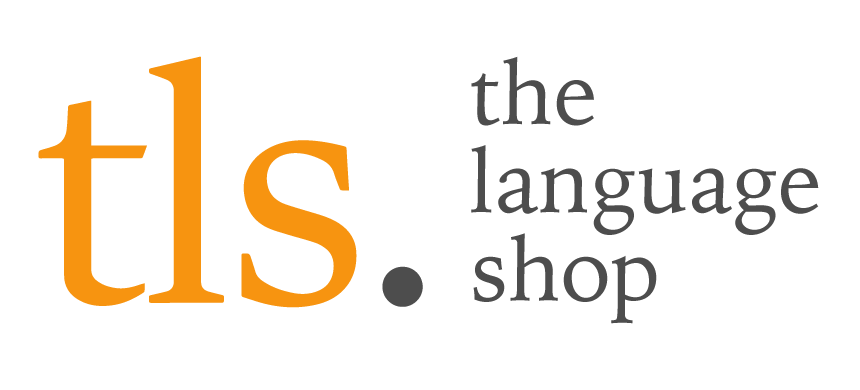Looking back over 2022
As we come to the end of 2022, we look back at some of our key monthly highlights and achievements....
TLS secured a large new contract
In NOVEMBER we were delighted to grow our business by becoming the sole provider of interpreting and translation services to all Primary Care Networks and GP surgeries and federations in Barking, Havering and Redbridge. A warm welcome to all our new customers.
TLS expanded its training portfolio
In JANUARY we built on the success of our free remote training sessions for customers, launching a weekly programme to which all customers are invited. The training demystifies the many types of interpreting and explains which you need and when – which can be a blessing when you are new to the world of language support! It looks at how and when to book an interpreter and best practice for working with interpreters, helping you to get the best value for your money.
The last two years have demanded a lot of flexibility and new ways of working. In MARCH, we brought you news of our remote examinations. Whether it’s the Ministry of Defence working in far flung locations around the world, or the University of West London and the International School of Music operating under Covid restrictions, the security and accessibility of our remote exam services have meant that people can continue to achieve their educational goals in the face of adversity.
In MAY, we brought news that we had added the Foreign, Commonwealth and Development Office to our growing list of customers using our training services.
Our training is not just reserved for customers. Many of our bookings take place in the health care sector. Psychiatrist Dr Sarkis Garjarian, from the North East London NHS Foundation Trust, provided training on Interpreting for Patients with Learning Disabilities in March, followed by a session in May on Working as an Interpreter with Clinical Staff. This session was based on feedback and was delivered to ensure interpreters provide quality interpreting.
Customers gave their feedback
In FEBRUARY, TLS reported back on the results of our annual customer survey. This showed an increase in the numbers of you using our remote interpreting services – and satisfaction with these services was up on the previous year too, from 80 to 88%. We are delighted that so many of you are taking up this new technology with us.
Just as welcome was the news that at 98%, almost all our customers would recommend TLS to a colleague or friend; a number that was also up on the previous year’s. At least part of that may be because 97% of you reported that the team was friendly and polite, and 96% that the support they provided was excellent or good.
TLS developed ways to save you time
In response to the 2021 survey results, showing an increased demand for and participation in remote services, in SEPTEMBER, TLS announced that we have developed brand new software called PRISM, a device to make booking an interpreter even easier and quicker. PRISM allows customers to book a remote interpreter immediately, using our specially designed device.
In OCTOBER, we introduced a QR code caption service, allowing you to request a translated version of a document by scanning a QR code and filling out a quick online form.
If you have any questions or comments about any of our 2022 news stories, please contact Zainub Patel at zainub.patel@newham.gov.uk
TLS scores top marks for customer service
Customer feedback is so important to our team and we are delighted to report that in the last three months our customers who include public sector organisations, charities and businesses, have rated 99% of interpreter appointments booked with us as 'Excellent' or 'Good'. They also reported that our interpreters were on time for 98% of appointments and 99.5% of customers fed back that appointments were 'easy to arrange'.
Our customers can choose from three service levels of interpreting; face-to-face, video and telephone, which can be provided as a scheduled or on- demand service and our qualified interpreters have over 250 languages between them! Our rigorous recruitment procedure guarantees customers always receive qualified and experienced linguists for every booking.
If you are interested in working with one of the UK's leading interpretation and translation service suppliers, that always puts its customers first, get in touch, we'd love to work with you.
November dates for your diary
Calendar snapshots
8th Birthday of Guru Nanak Dev, Sikh
Guru Nanek Dev was the first Sikh guru and original founder of the religion. In India, in preparation for his birthday, there is akhand path, a 48 hour non-stop recitation of the Guru Granth Sahib in the gurdwaras. The day before the celebrations, there are processions and on the day of the festival itself, people gather for langar, a communal free lunch at the gurdwaras.
14th World Diabetes Day
Since 1991, World Diabetes Day has been marked on 14 November, the birthday of Frederick Banting, the man who co-discovered insulin, the hormone that regulates blood sugar. The theme for this day for the years 2021-23 is access to diabetes care, and organisers call on governments to provide better education and equality of access.
18th UK Disability History Month begins
Since 2010, during UK Disability History Month, we have celebrated the achievements of disabled people in this country. We also take the month to pay homage to the disability rights movements and activists who have fought for equity and equality for disabled people.
This month’s dates at a glance
1st All Saints’ Day – Christian
2nd All Souls’ Day – Christian, Coronation of Emperor Haile Selassie I – Rastafari
8th Birthday of Guru Nanak Dev – Sikh, Intersex Day of Solidarity
9th Dedication of the Lateran Basilica – Catholic Christian,
11th Armistice Day
13th Remembrance Sunday, World Kindness Day, UK Interfaith Week begins
14th World Diabetes Day
15th Nativity Fast begins – Orthodox Christian
16th International Day for Tolerance
17th International Students’ Day
18th International STAND UP to Bullying Day, UK Disability History Month begins
19th International Men’s Day
20th Feast of Christ the King – Christian, Transgender Day of Remembrance, Universal Children’s Day
21st Presentation of the Theotokos – Orthodox Christian
24th Martyrdom of Guru Tegh Bahadur – Sikh
25th International Day for the Elimination of Violence against Women
26th Day of the Covenant – Baha’i
27th Advent Sunday – Christian
28th Ascension of Abdu’l-Bahá – Baha’i
30th Saint Andrew’s Day – Christian, Bank Holiday – Scotland.
Rare language fact file: Hertevin
Native to: Siirt Province, Turkey
Number of native speakers: 4
Spoken by: Chaldean Catholics from the region
Learn some: With only 4 native speakers left, it is unlikely that you will need to use it, but to greet someone on Hertevin is ‘shlama’!
Interesting facts:
- Although Hertevin is ancient, with records going back to the 6th century BC, it was not formally recognised until the 20th It is part of a group of languages that are known as Neo-Aramaic.
- The language is named after a village in far southeastern Turkey. In the 1970s, Hertevin village had a population of 500, with many speaking the language, however by 1990 just one Hertevin-speaking family remained. Unlike most endangered languages, which face pressure from globalisation, the Hertevin speakers were forced to flee due to targeted violence during the Armenian Genocide.
- The scattering of people from this region has contributed to the dwindling number of speakers of Hervetin. However, many Chaldean Catholics settled in Paris, where they were joined by Iraqi Christians during the Gulf Wars. There is a cathedral in the 18th arrondissement of Paris where the mass is read in Chaldean languages, as well as French.
The Language Shop provides support in any language you may need, including many of the rarer ones. Please speak to your account manager about your requirements.
Remembrance Sunday, 13th November
What: On the Sunday that falls nearest to 11th November (Armistice Day, marking the end of WW1), we remember British and Commonwealth soldiers who died in the World Wars and later conflicts.
Why: The day is an opportunity to remember our dead. For some, Remembrance Day is a time to focus on the tragedies of war, which we should strive to avoid. For others, it is a time for paying respect to the military.
How: The first anniversary of the end of WW1 was marked by King George V with a banquet, which a lot of people felt did not give the event the seriousness it deserved. The following year, the first event at the Cenotaph was held, which gave people the opportunity to gather and remember their dead. From 1921, the Royal British Legion started to sell the now synonymous red poppies to raise money for war veterans. These latter two traditions continue today, along with the two minute silence at 11am.
We always love to hear from customers about their own significant dates. Please get in touch if you have observed any of November’s festivals and would like to share stories or photos with us!
Meet The Team: Shaun Hunsley, BSL Interpreter
Every month, we introduce you to one of our team. This month, meet Shaun Hunsley, one of our freelance British Sign Language (BSL) interpreters.
Tell us about the role you do for TLS
I have worked as a freelance British Sign Language Interpreter for TLS for around 20 years. I cover a wide variety of assignments ranging from Health settings including Mental Health, Social Services and Events.
What's been your favourite project at TLS?
TLS used to be the provider of Interpreters for Pride in London. I used to be one of their Interpreters for the Main Stage. I don’t think it’s possible to have more fun in one day, so great memories.
What has been your biggest challenge?
I was attacked and left unconscious in the street with a broken nose, cheek bone and eye socket and fractured my jaw. I had an operation putting a metal plate permanently in my face and coming to terms with this, being a non-violent person, was a huge struggle.
If you didn’t do your current job, what would you like to do ?
If I was not an interpreter, I am sure I would have tried my hand at Interior Design. It has been a passion of mine for as long as I can remember. I struggle to walk past a furniture store without going in and coming out with yet another thing for the flat, as my poor husband will attest to.
Tell us something interesting about you.
I was booked to interpret for a party that the late Queen of England was throwing in Buckingham Palace. It was an incredible evening. Then sadly I was part of the interpreting team booked for her funeral, it was an honour and a privilege to do both.
- If you could meet someone, living or dead, who would it be and why?
I would love to meet Meryl Streep; she is an incredible actress and so unbelievably versatile in the roles she takes, so it would be great to talk about her career.
What are your ambitions for the next 12 months?
To have as much fun as possible. Life is too short!
If you would like to be profiled, or know someone else who would, please get in touch by emailing zainub.patel@newham.gov.uk
Striking European Parliament interpreters back at work – for now
Striking interpreters at the European Parliament have reached a temporary compromise with their employers, and are back at work for the time being.
In August, we brought you news of the remote interpreters on strike in the European Parliament. The interpreters were protesting the lifting of health and safety measures on remote interpreting, such as time limits to protect against hearing damage.
They have agreed to once again interpret remotely, but only if the parliament adheres to health and safety guidelines.
The episode has highlighted the need for the industry to adapt to new ways of working following the pandemic.
At TLS, our interpreters’ health and safety is a priority. If you have any questions about this, please contact your account manager.
October dates for your diary
Calendar snapshots
4th Blessing of the Animals - Christian
On the Feast of St Francis of Assisi, the saint known for his love of animals, many Christians mark the day by saying prayers over animals. These could be pets, working animals or animals going to slaughter. Often, animals are brought to a place of worship to be directly blessed on this day.
5th Dusshera - Hindu
On this day, Hindus celebrate Lord Rama’s defeat of Ravana, the ten-headed king of the demons who abducted Rama’s wife Sita. It is also said that Goddess Durga defeated the buffalo demon Mahishasura on this day. Celebrations involve effigies of the defeated, which are burned in the streets with fireworks, the fire representing the triumph of light over darkness.
10th World Mental Health Day
The World Federation for Mental Health sets the theme for this annual awareness-raising day. The theme for 2022 is 'Make mental health and wellbeing for all a global priority' and calls on those in charge to prioritise mental health care. It also provides an opportunity for everyone to talk about mental health with friends, colleagues and loved ones.
This month’s dates at a glance
1st International Day of Older Persons
2nd Feast of the Guardian Angels – Christian
International Day of Non-Violence
4th Blessing of the Animals – Christian
Saint Francis’ Day – Christian
5th Yom Kippur – Judaism
Dussehra – Dasara – Hindu
6th World Cerebral Palsy Day
8th Mawlid al-Nabi – Islam
9th Birthday of Guru Ram Das – Sikh
Sukkot begins – Judaism
10th World Homeless Day
World Mental Health Day
11th International Day of the Girl Child
13th World Sight Day
15th International Day of Rural Women
16th World Food Day
17th Shemini Atzeret – Judaism
International Day for the Eradication of
Poverty
18th Feast of Saint Luke – Christian
Simchat Torah – Judaism
World Menopause Day
19th International Pronouns Day
24th Diwali – Deepavali – Hindu, Sikh, Jain,
Bandi Chhor Divas – Sikh
United Nations Day
26th Birth of the Báb – Baha’i
Intersex Awareness Day
27th Birth of Baha’u’llah – Baha’i
28th Feast of Saints Simon and Jude – Christian
29th World Stroke Day
30th British Summer Time ends
31st All Hallows’ Eve – Christian
Reformation Day – Protestant Christian
Samhain (Halloween) – Beltane – Wicca/Pagan Northern and Southern hemispheres
Rare language fact file: Shelta
Native to: Ireland and the UK
Number of native speakers: approximately 90k (last count in 1992)
Spoken by: the Irish travelling community
Learn some: Greet a Shelta speaker with ‘slum hawrum’ in the morning and ‘slum dorahog’ in the afternoon or evening.
Interesting facts:
- Shelta is the formal name of this language, which is widely called The Cant or Tarri by its speakers, or De Gammon in Ireland.
- The origins of the language are Irish Gaelic, but as its speakers are travellers, or ‘wanderers’, it is rich in influence from Scottish and English. Due to the longstanding persecution of the travelling communities, Shelta has been used as a ‘cryptolect’, which is a language designed to prevent understanding by outsiders. However, this was not its primary purpose.
- Despite its endangered status, Shelta continues to evolve. In the US, where there is a diasporic travelling community, the ‘englishening’ (a Shelta expression to describe the encroaching influence of English on the language) has had a much bigger impact on Shelta than it has on this side of the Atlantic.
The Language Shop provides support in any language you may need, including many of the rarer ones. Please speak to your account manager about your requirements.
Celebrations Around the World: Sukkot, 9th – 16th October
What: Sukkot is a week of celebration, with different observations on different days, eg on the first two days, Jews are forbidden to work. This is known as yom tov.
Why: Sukkot, as with many festivals at this time of year, gives thanks for the harvest, as well as praising god for protecting the Jews after they left Egypt. It is the only Jewish festival that does not commemorate a historical event.
How: It is traditional to build a sukkah, a kind of outdoor shelter covered in foliage. The sukkah symbolises the shelter given to the Jews in the desert, either in the form of clouds, shielding them from the hot sun, or the tents they lived in. Families spend as much time as possible in the sukkah over the week, eating all meals in it and sometimes sleeping in it too.
On each day of Sukkot, except for the sabbath, people take the Four Kinds (a citron, a palm frond, three myrtle twigs and two willow twigs) and wave them up, down, backwards, forwards, right and left. These represent the various personalities making up the community of Israel.
The last day of Sukkot (or two days in the diasporic communities) is given over to pure enjoyment and celebration.
We always love to hear from customers about their own celebrations. Please get in touch if you have observed any of October’s festivals and would like to share stories or photos with us!










